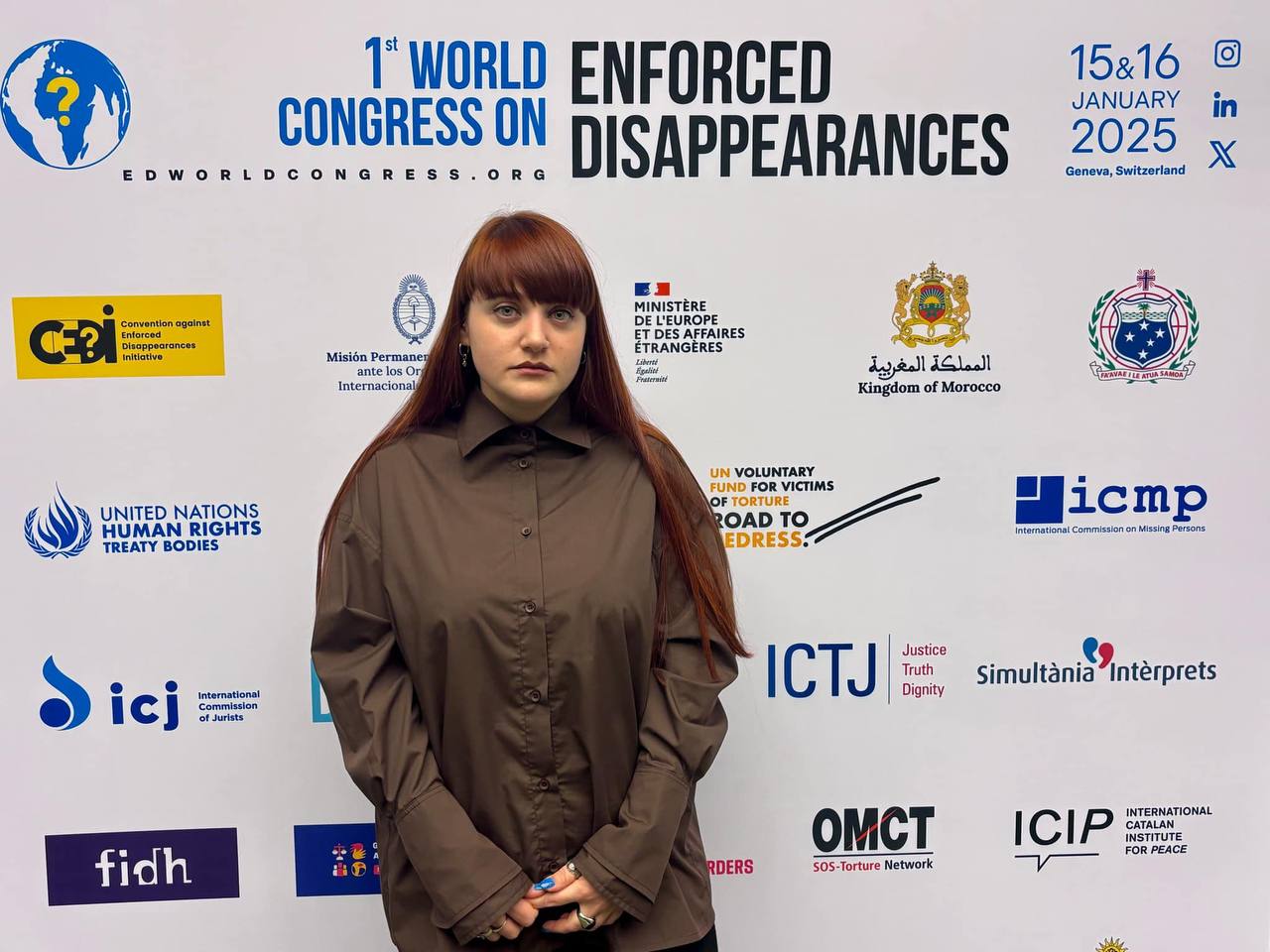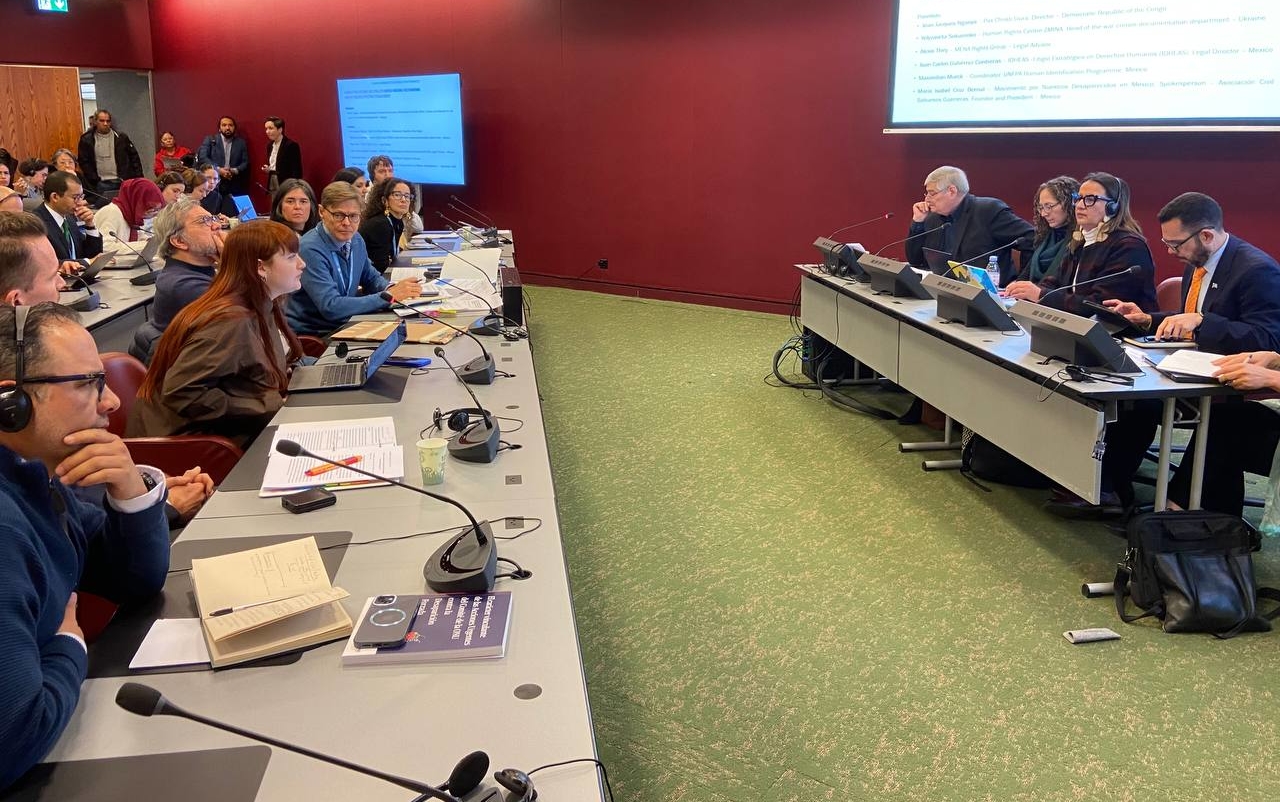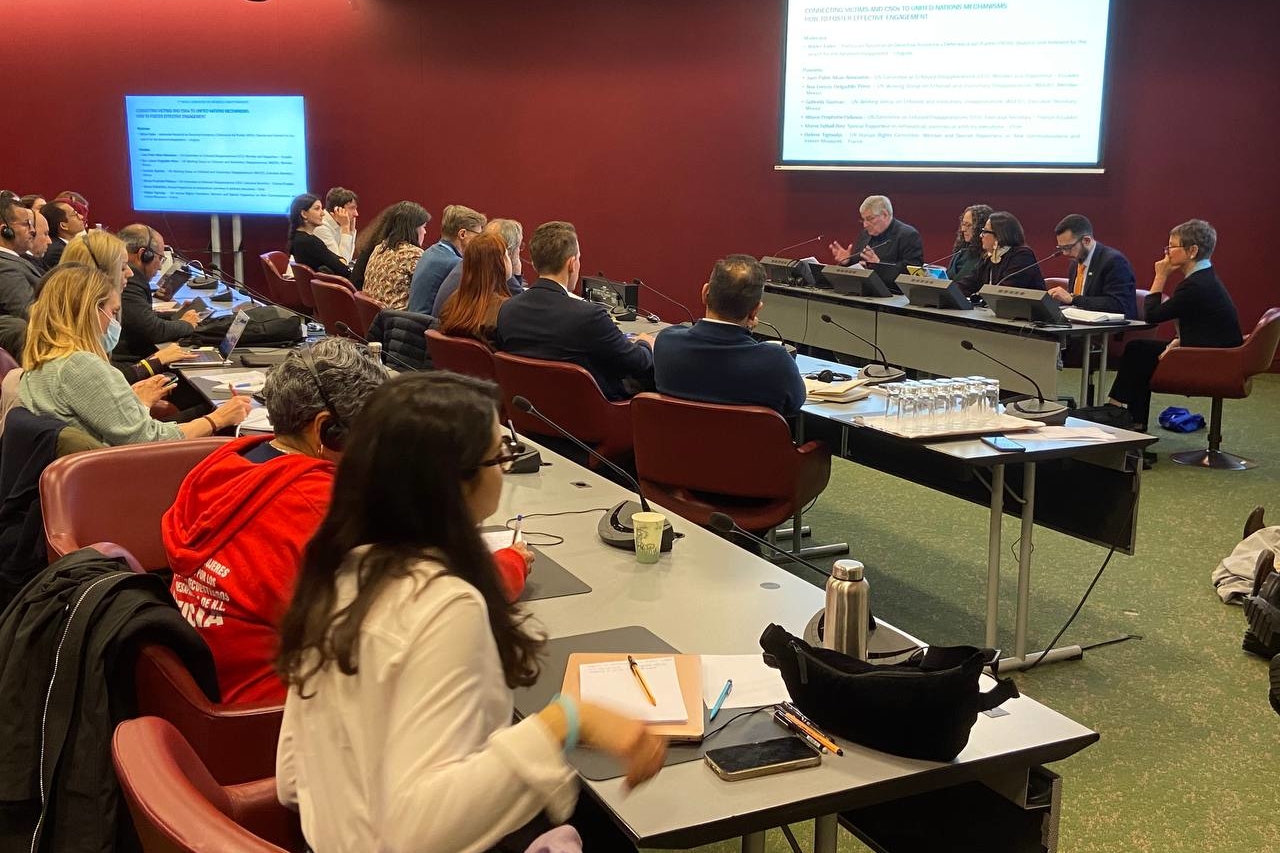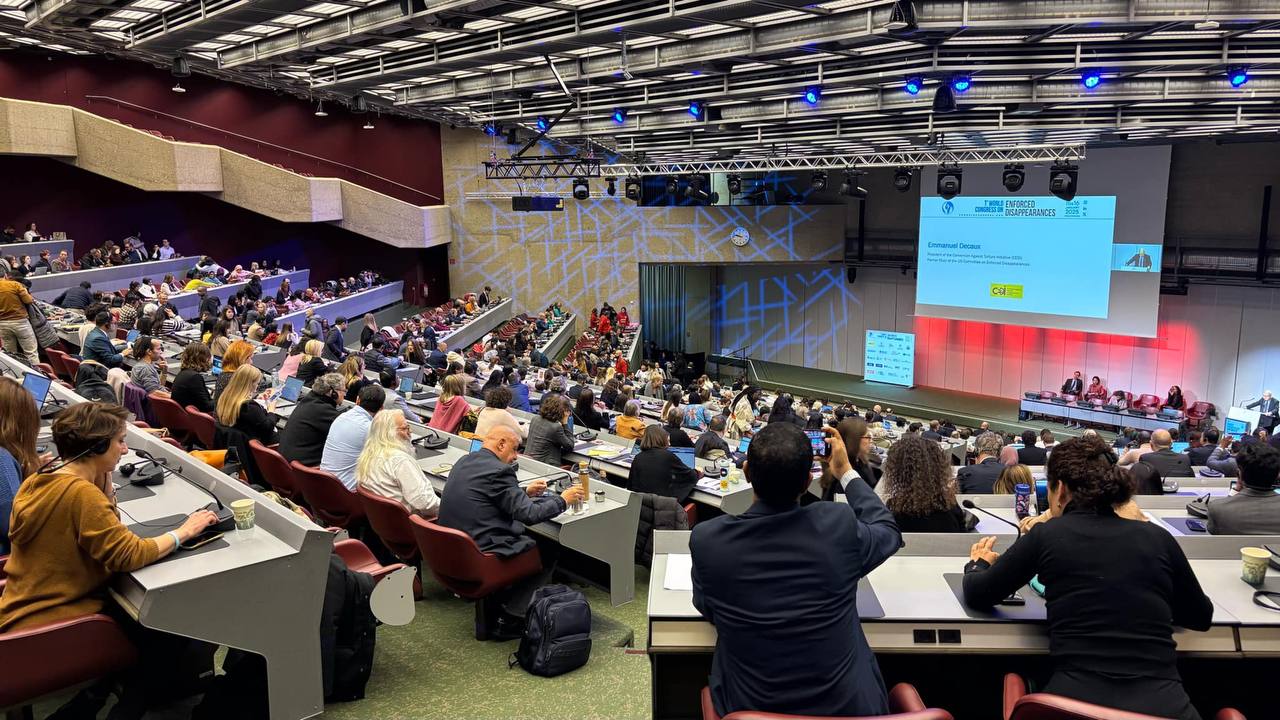World Congress on Enforced Disappearances: ZMINA shared experiences and challenges of cooperation with the UN mechanisms
The First World Congress on Enforced Disappearances gathered representatives of over 100 countries in Geneva on 15-16 January. ZMINA attended the Congress to share documented stories of Ukrainian victims of abductions in the occupied territories, as well as ways of providing justice for international crimes committed due to the Russian armed invasion.

Yelyzaveta Sokurenko, Head of the International Crimes Documentation Department of ZMINA, joined the panel “Connecting victims and civil society organizations (CSOs) to United Nations mechanisms: how to foster effective engagement”. During this event, CSOs shared experiences and challenges of cooperation, while the UN mechanisms responded and presented existing tools to address enforced disappearances.
In particular, Sokurenko highlighted that the Kharkiv Institute of Social Studies researched the population’s attitude towards international crimes in Ukraine. It showed that respondents consider international and national organizations to be the most effective in investigating war crimes and, accordingly, the most trusted.
“This is quite a challenge. At the same time, it places an obligation on us to ensure that victims have access to such mechanisms, as well as to provide them with full and understandable information about their functioning. This is important in order to ensure that the expectations of victims are met with the capabilities of such mechanisms,” said Sokurenko.

She noted that ZMINA has prepared about 20 submissions both to treaty-based and charter-based UN bodies during the last 2 years. They covered Russia’s gross violations against civilians in the occupied territories of Ukraine during the full-scale invasion such as arbitrary detentions, enforced disappearances, extrajudicial executions, sexual violence, torture and inhumane treatment.
“In some cases, we address UN mechanisms concerning specific people who are illegally detained, have critical health conditions and are in urgent need of medical care. The following reaction helps to draw attention to these cases and in some at least to improve the conditions of detention of civilians illegally deprived of their liberty by Russia,” added Sokurenko.
She emphasized that there is a lack of effective communication about submissions due to the limited UN resources and the large number of requests from all over the world, as well as a lack of understanding of the UN mechanisms, “Therefore, it is important to ensure a comprehensive support for UN mechanisms, adopt changes regarding current challenges, and provide the public with an understandable guide on the UN functioning.”

Representatives of the UN Working Group on Enforced and Involuntary Disappearances, the UN Committee on Enforced Disappearances, the UN Human Rights Committee, and the Special Rapporteur on extrajudicial, summary or arbitrary executions. They explained how to use these mechanisms and their mandates, as well as the existing challenges, such as limited resources:
“We at the Working Group have already submitted inquiries on over 2000 cases to the Russian Federation. Now, we have 6000 cases more to review and work on. It is while we have only one person responsible for Ukraine in our office,” said Ana Lorena Delgadillo Perez from the Working Group on Enforced and Involuntary Disappearances.
Juan Pablo Alban Alencastro from the Committee on Enforced Disappearances said he encourages “-civil society and families to shout out about victims to push for activation of the mechanisms implemented by countries. At the same time, we understand that we must put more resources into capacity building.”

It was discussed alongside the stories of victims of enforced disappearances and ways of their protection from the whole world: Mexico, Argentina, Uruguay, Colombia, Venezuela, Syria, Afghanistan, India, Morocco, Egypt, Burkina Faso, Burundi, Bangladesh, Sudan, Thailand, Senegal, and other countries which faced the problem of enforced disappearances.
If you have found a spelling error, please, notify us by selecting that text and pressing Ctrl+Enter.















